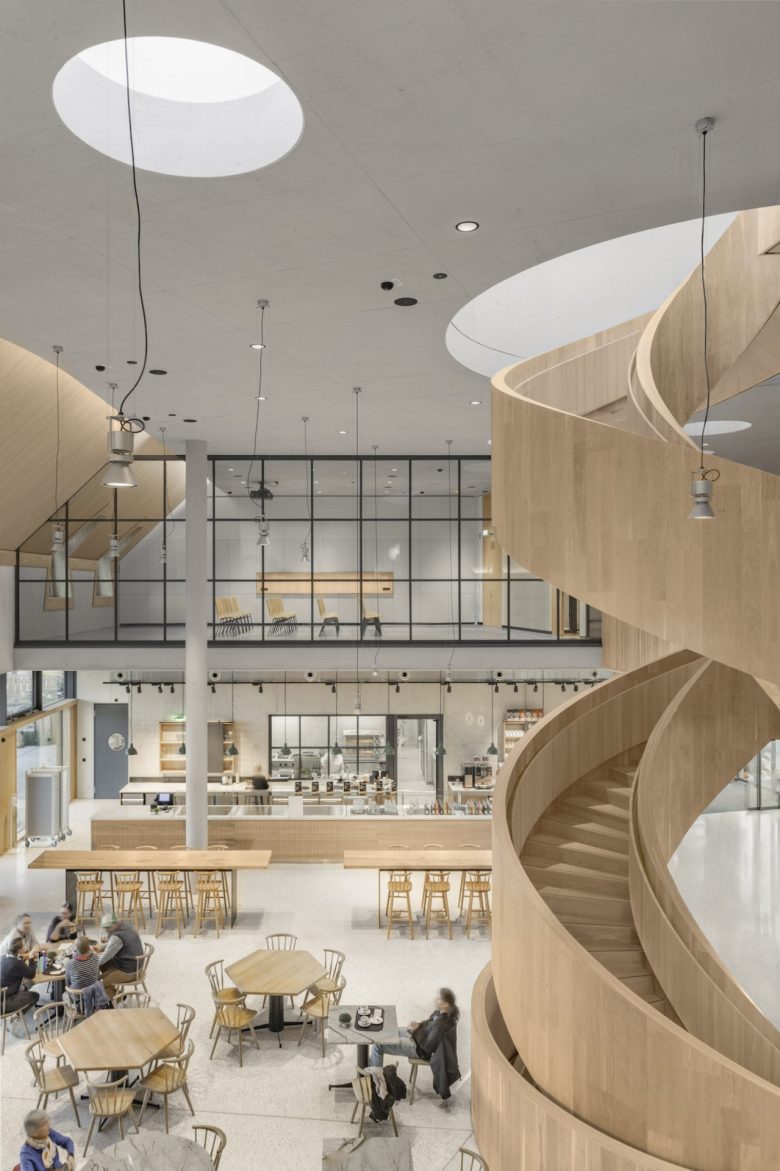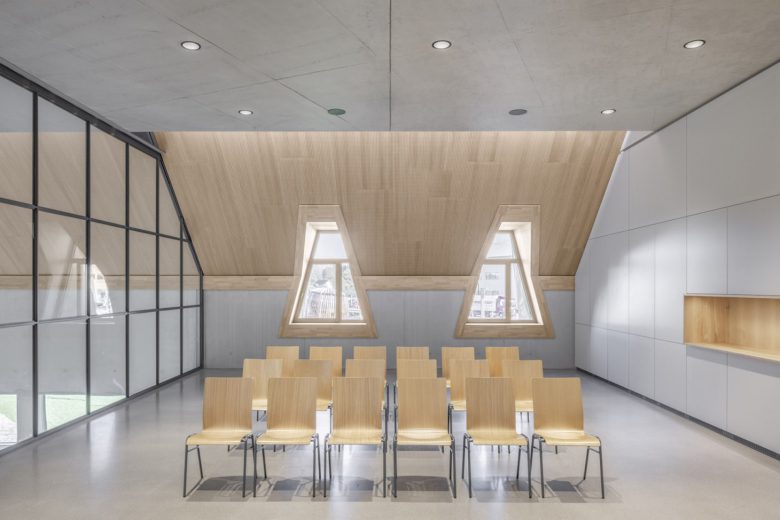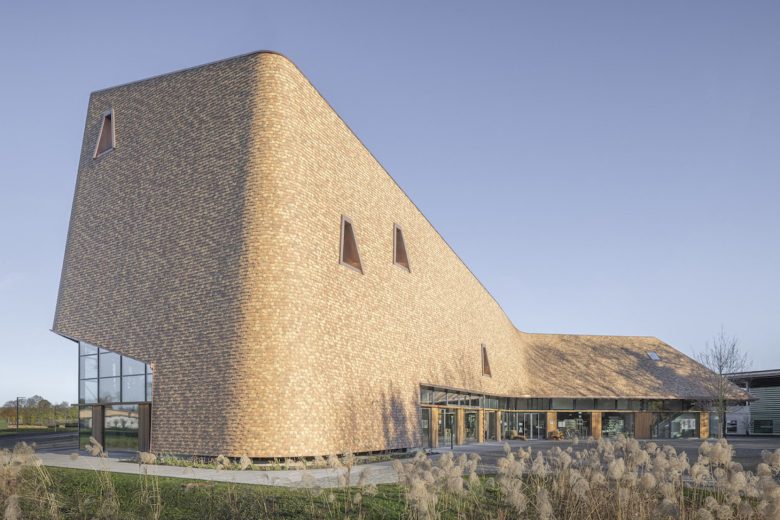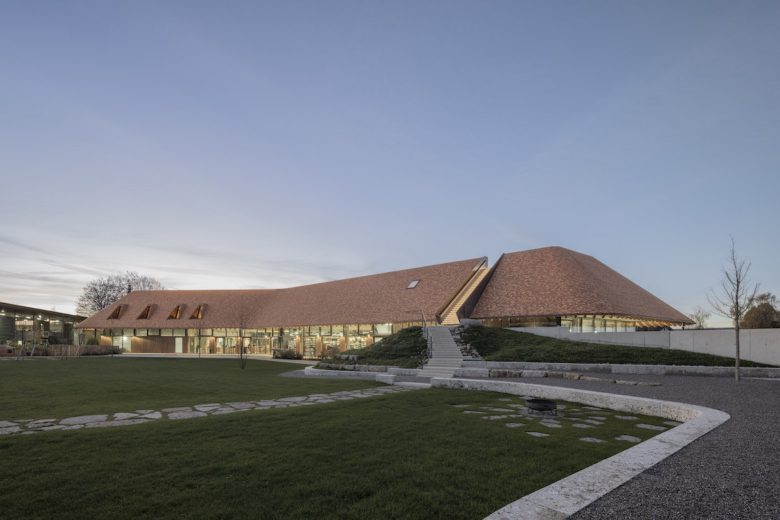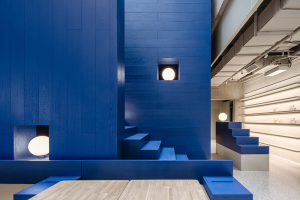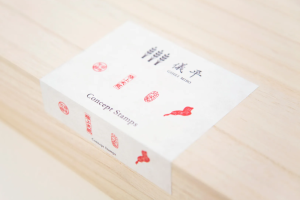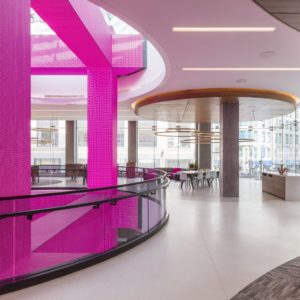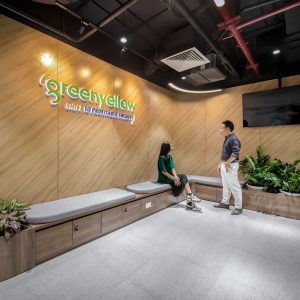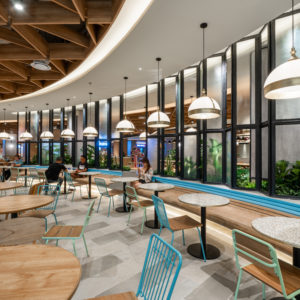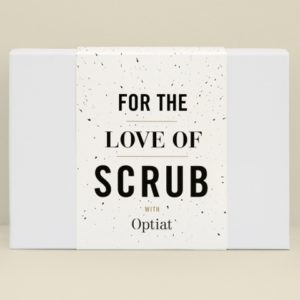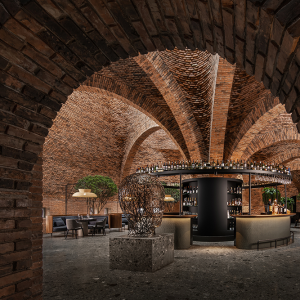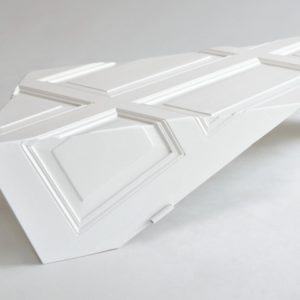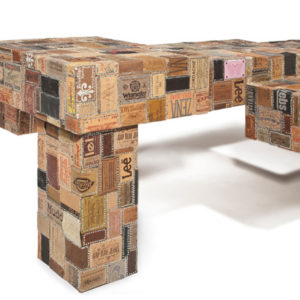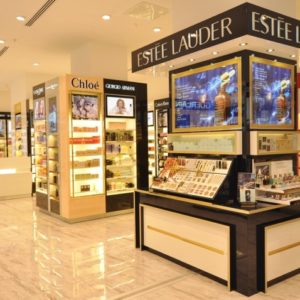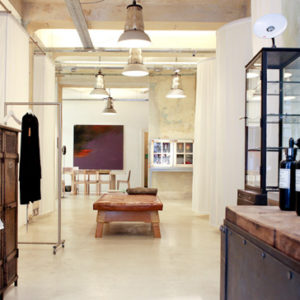
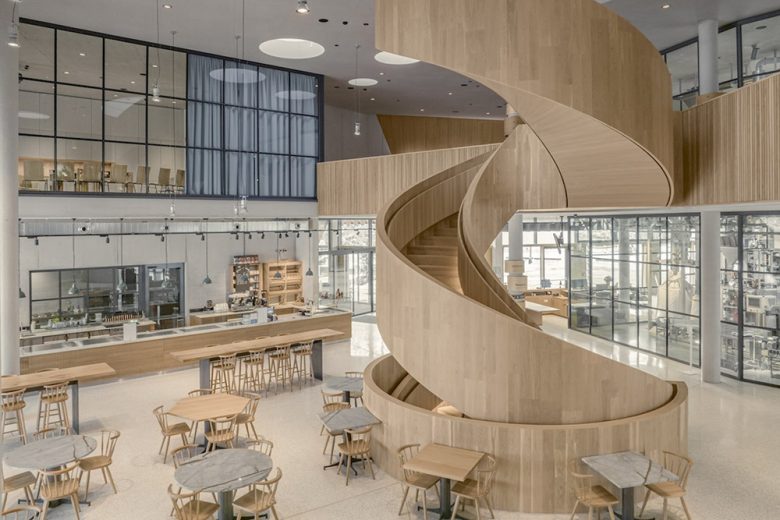
A German organic produce grower’s experience centre engages visitors with the production process through hospitality and exhibition elements.
Key features
Haas Cook Zemmrich Studio2050 designed an immersive visitor experience in Legau, Germany, for producer and distributor Rapunzel Naturkost. Through interactive exhibitions and programming, visitors can learn about cultivation, fair trade and production of organic produce. The space subtly nods to the fable the company share its name with; its tallest point is the Rapunzel Tower. Rapunzel’s iconic braid is symbolized by a large spiral wooden staircase, which runs the height of the entire building, connects the programming spaces with the viewing tower and provides vistas of the surrounding Allgäu landscape.
Glazing surrounds the façade on the ground level, merging with the site’s gardens. Glass also creates a viewpoint for visitors to observe the facility’s on-site coffee roastery and bakery. Wood was used for the interior finishes and furniture, complemented by large round skylights cut out from the tall, lofted ceilings. Most of the materials used are renewable and recyclable. Wood and gravel were sourced from the region. Natural ventilation methods are incorporated into the building’s architecture, and only the coffee roastery requires artificial cooling.
Other interactive spaces go into the experience. A 600-sq-m exhibition designed by Atelier Markgraph provides educational and entertainment opportunities for visitors. It’s activated with ample programming, like wine tastings and courses in a wine cellar as well as yoga, cooking classes, seminars and other educational courses in dedicated spaces. An extensive outdoor garden leads to tropical grow houses where coffee plants are cultivated on site.
FRAME’s take
Locally produced food releases up to 17 times fewer CO2 emissions than food that’s been produced and transported distantly. Organic produce also requires the use of fewer environmentally harmful chemicals and pesticides. These messages are important to communicate if we are to transform our food production systems for the health of people and the planet. The Rapunzel Naturkost experience is designed to imbue a sense of excitement in the community about the local and sustainable production of food by allowing visitors to observe and engage with these processes. The space goes far beyond the traditional farm stand and immerses visitors in a lasting lesson about food production.
Designed by Haas Cook Zemmrich Studio2050
